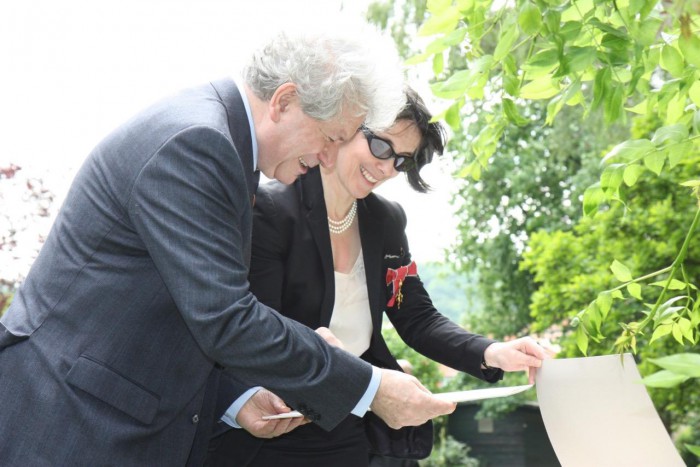23rd November 2015
Diplomatic Notes and Instruments: Blog for St Cecilia’s Day


A colleague in the Balkans recently said “tell me about music and diplomacy”. Sitting in Vienna on a cold, grey Sunday that is the day of St Cecilia patron saint of music, seems as good a time as any.
A flurry of academic writing has yet to persuade me of music’s capacity ‘to model international dialogue’, or of musical scholarship to ‘guide decision making processes’. But diplomatic history has long had a musical accompaniment.
Diplomats use many tools to promote interests and build relationships. Music has been used for centuries to project status, riches, cultural refinement or diversity (notwithstanding the potential pitfalls of misjudging your audience). Great works have been written for, or commemorating, diplomatic events, such as Handel’s Utrecht Te Deum and John Adam’s Nixon in China. These days though music is more often used as an instrument of ‘soft power’ or ‘public diplomacy’ to project an image of a country.
There have been many fewer diplomatic composers than diplomatic authors, perhaps unsurprising as we are trained to write telegrams and speeches, not toccatas and symphonies. Many diplomats though are musicians. 1919 Treaty of Versailles signatory Paderewski had the rare distinction of being virtuoso pianist, composer, ambassador and Polish Prime Minister.
I studied music with the aim of making it my profession. Life took me down another path, but my training gave me skills useful for a diplomat, and music has given me unrivalled opportunities to get to understand my host countries better.
Diplomacy in turn has brought me musical opportunities too. My first Ambassador in Moscow (a viola player like his most recently announced successor) whilst building relations with Kremlin decision makers also kept an open door for some of the century’s great composers and performers. My Dutch harpsichord, with pride of place in my home, often acts as an excellent diplomatic ice breaker. In the Czech Republic, where classical music plays a significant role in public life, my first media appearance was an approving front page headline ‘British Ambassador likes Janáček’. Here in Vienna it will be a great privilege for me to play this week in a charity concert in the Musikverein, with a former British Ambassador to Austria, and to return later for a performance of Haydn’s Creation – a work commissioned by a former diplomat.
The realities of international relations and multilateral diplomacy mean that most of my waking hours are spent thinking about preventing or resolving conflict, or tackling serious threats to security and abuse of human rights. The challenges can seem endless and intractable. Making some space for music at the end of a working day helps me keep a clear head and sense of perspective on what we at the OSCE can best do to overcome them.
My colleague, UK Permanent Representative to the UN in New York, joked on Twitter about a need for more music in the Security Council. Perhaps if the P5 permanent members played Mozart String Quintets before discussing the world’s toughest problems solutions might come more easily.
Excellent blog Sian and I agree with all of it! Diplomatic notes, indeed. Didn’t Shakespeare say something about music and love?